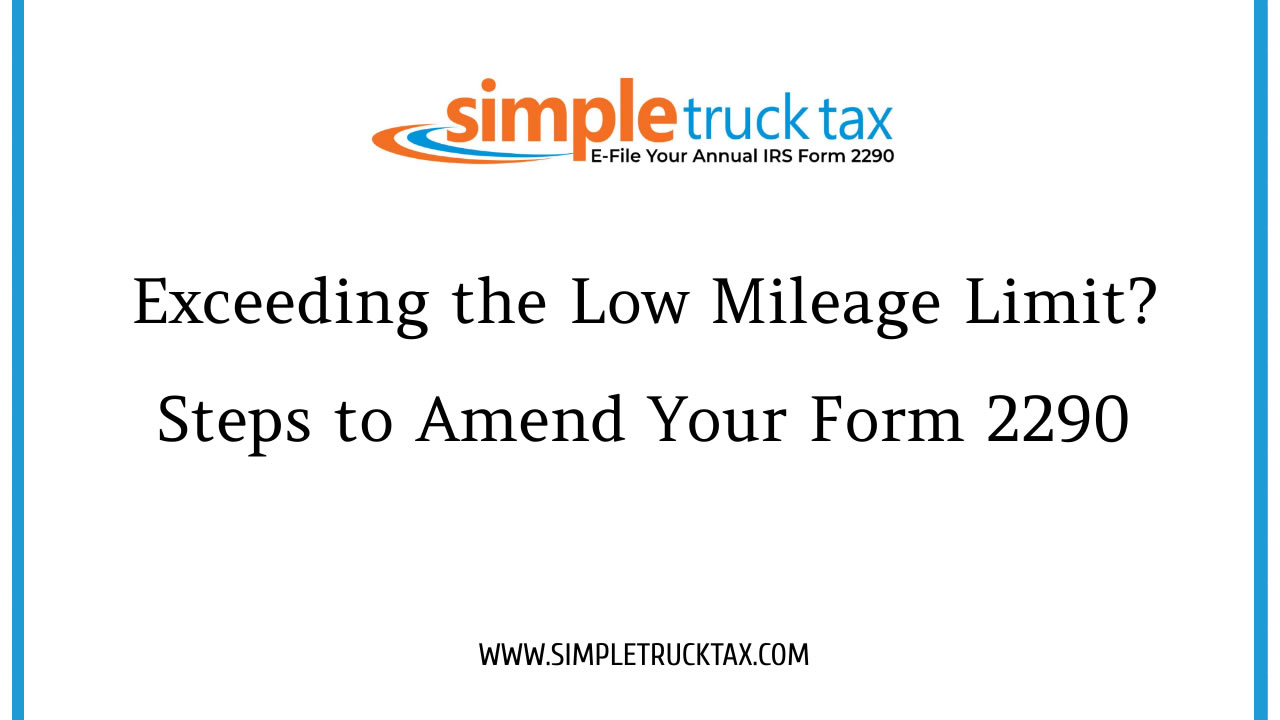
Exceeding the Low Mileage Limit? Steps to Amend Your Form 2290
Step by Step Guide To Revise Your Form 2290 After Exceeding The Low Mileage Limit
The IRS Form 2290 is a great tool to assist the owners of truck pay the Heavy Vehicle Use Tax. There is a frequent case in which this form needs to be amended which is crossing the low mileage exemption limit of 5000 miles (7500 miles for agricultural vehicles) over a span of time. If such situation arises then it is best to act quickly to avoid any penalties from IRS.
What is the definition of Low Mileage Exemption
The exemption is targeted towards vehicles that are driven occasionally. To claim the exemption one still has to file form 2290 but is not taxed if the vehicle has driven a certain amount which is the threshold. On the other hand if the threshold mile limit is crossed then a return must be filed and the tax be paid. So to avoid any unwarranted liabilities knowing this threshold is crucial.
How can and when should one revise their Form 2290
The revision should be filed as soon as the vehicle exceeds the low mileage limit as it is stated in form 2290 that such changes should be proposed when this limit is exceeded. The steps involve:
- Collating the information that is required: Summon the required documents that include Form 2290, VIN, and mileage records.
- Amending form filing: Make use of Form 2290 claiming that an amendment is being filed by indicating the necessary tax due by accompanying relevant information like the month in which the mileage limit crossed is breached.
- Amended form filing: Submit the amended form online without E-filing or vice versa. E-filing is usually quicker and provides greater assurance of timely submission.
How is the Calculated Extra Tax and Payment made
The additional HVUT portion is based on the month in which the vehicle crossed the mileage limit. Use the tax tables provided by the IRS or aid calculators available on the internet to calculate the exact amount due. Payments can be done through Electronic Funds Withdrawal (EFW) EFTPS and cheque/Money order. Ensure that the tax due is paid as soon as the due date is reached to avoid penalties and interest charges.
Ways to comply in the Future
To avoid surprises in the future ensure the mileage taken is accurate and kept and checked often. Setting up reminders can be used to check on usage as the tax period nears its end. It also helps to consult a tax professional if the mileage characteristics of your fleet are likely to change, in order to pre-emptively plan while doing your best to be compliant with all IRS regulations. Amending Part 1 of the Form is very easy since we have clear steps which require action to be taken soon after the low mileage limit is passed.
There are penalties to be incurred if you are disorganized and unprepared, but, planning ahead enables you to operate your trucking business without interruption.
Note: For more information, visit IRS website